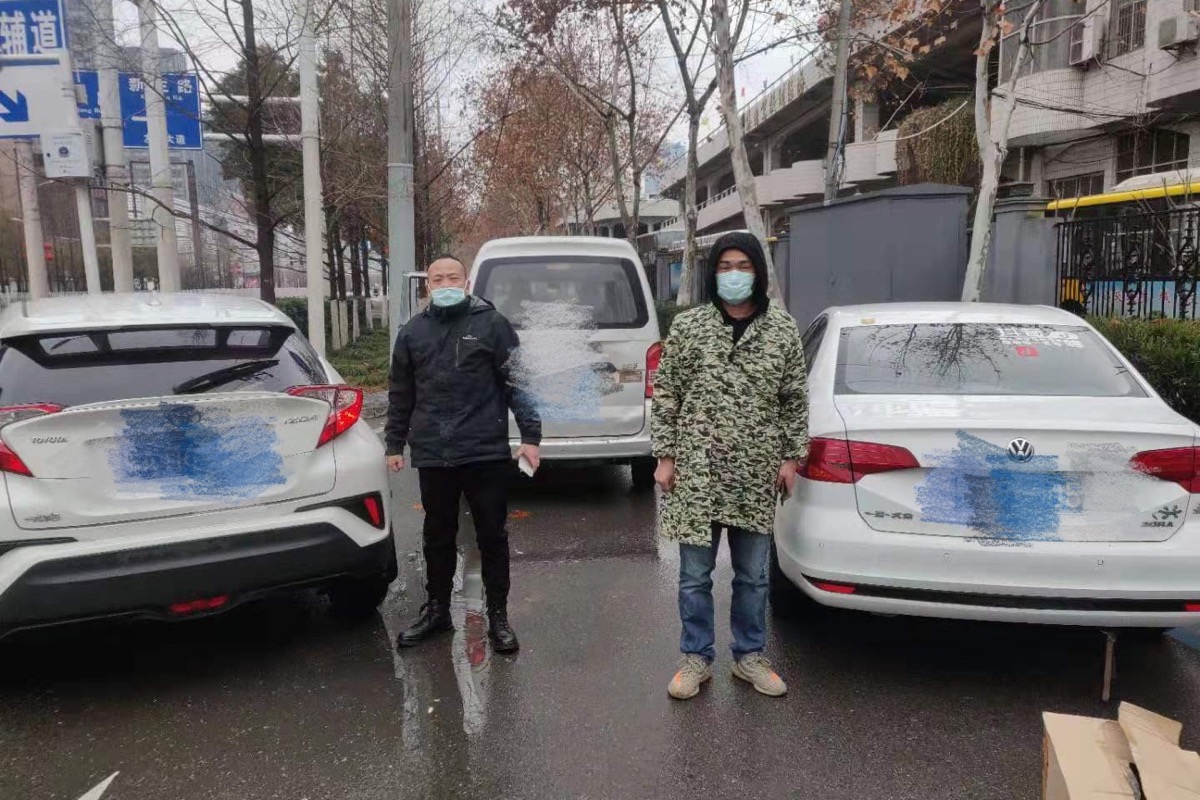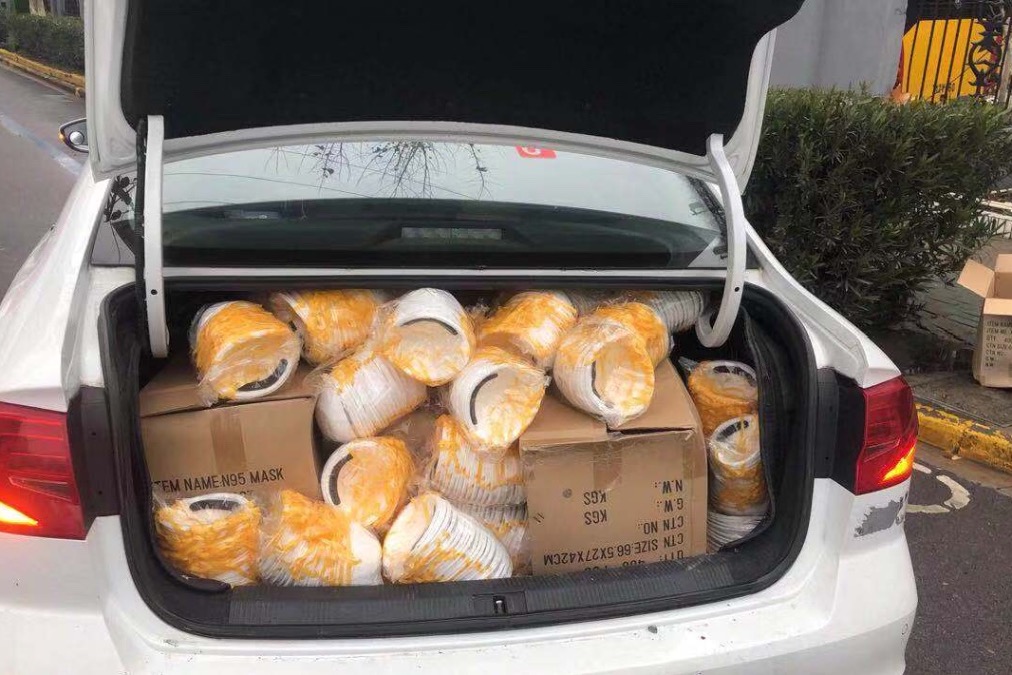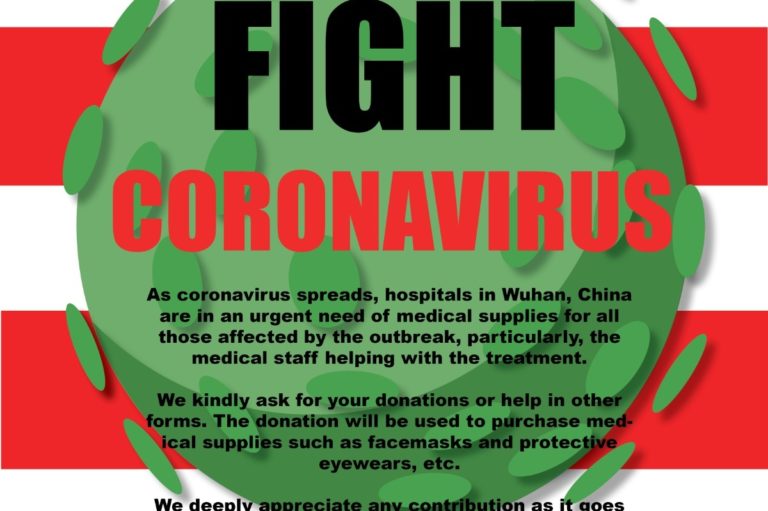Amidst fear, alienation and pain, Chinese students in the US are organizing grassroots medical relief in an effort unknown to the American public.
“Our school has a very small Chinese population. People around here might have misunderstandings towards the coronavirus and us,” said Caizi Qi, a Chinese student at the University of Notre Dame. “We hope the community will have more empathy if they learn more about our efforts in fundraising and battling the epidemic.”
Qi and a group of Chinese students and alumni in the greater Chicago area successfully raised $15,000 through GoFundMe within a week and delivered 1,500 protective suits, 150 goggles and 50,000 respirator masks to over 40 hospitals in Wuhan, the epicenter of China’s coronavirus outbreak.
Through connecting with volunteers in China, Qi’s fundraising group assembled a team of volunteer drivers in China to deliver the medical supplies to Wuhan. While highways were blocked and the lockdown of Wuhan and neighboring cities was in place, the volunteers, who have an average age of 20, drove over five hours on country roads to pick up and deliver the donated medical supplies.
Yet Qi is only one among the hundreds of Chinese students and professionals in the U.S. who are raising money through social media to send medical supplies to Wuhan.
 The volunteers in Qi’s fundraising group
The volunteers in Qi’s fundraising group
Photo Credit: Caizi Qi
Fighting a disease with a death rate of 4.1% in a locked-down city of 11 million people, hospitals in Wuhan are overwhelmed and in dire need of medical supplies. The insufficiency is further exacerbated as most factories across the country are still shut down to contain the spread of the virus.
With the global number of confirmed infections surpassing 70,000, many Chinese students in the U.S. are living with constant anxiety.
Many are concerned about their families and friends back home and some unfortunate students are tormented by the news of their family members being quarantined or even infected.
The sense of alienation and helplessness is further exacerbated by the growing anti-Chinese antagonism around the world, including in prestigious U.S. universities. Some students, like Qi, chose to change the situation themselves and fight the battle against the coronavirus across national borders.
Rather than donating money to often inefficient and unreliable relief organizations–including the Red Cross, which has recently been accused of not distributing supplies and donations–Chinese students in the U.S. decided to unite and directly assist their families back in China.
 The surgical masks donated by Qi’s fundraising group
The surgical masks donated by Qi’s fundraising group
Photo Credit: Caizi Qi
Grass-roots fundraisers organized by Chinese students through social media and crowdfunding sites have also grown in universities across the U.S.
On the West Coast, Chinese student associations at a number of universities, including Stanford and UC Berkeley, have collectively organized a fundraising campaign to send medical supplies directly to Wuhan.
Outside of universities, young Chinese professionals in the U.S. are also organizing.
Initially raising money on her own through WeChat, Xiling Chen, a Chinese Tufts University alumnae currently working in New York, was soon introduced to a fundraising group run by Tufts alumni and students.
From there, Chen joined a much bigger fundraising group in Boston, comprised of Chinese alumni and students from Harvard, MIT, Tufts, Wellesley college, Wuhan University and Tsinghua University, as well as Chinese staff at Massachusetts General Hospital. Together, the group sent 4,000 protective suits to hospitals in Wuhan in early February.
“These doctors [in China] are working so hard and they don’t even have enough protective suits. It’s just too painful to watch,” said Chen , “I thought I had to do something.”
Yet despite their eventual success, the fundraising efforts of Chinese students and young professionals were met with enormous challenges. The initial step of identifying viable sources of medical supplies alone was extremely difficult, given the current scramble for medical supplies around the world.
“We called almost all the medical supply distributors in the U.S., all of them. Many students and professionals had to sacrifice their time for school and work because it was so time-consuming,” Chen admitted.
After securing the supply, the young grassroots fundraisers, most in their early 20s, had to then navigate the complicated process of figuring out the transnational logistics, clearing customs, and conducting due diligence at each step to prevent fraud.
Having successfully completed the first round of fundraising and delivery, Qi has more ambitious goals. “Since most fundraising groups are isolated, we want to build a value chain with secured sources of medical supplies, distribution channels and target hospitals,” she said.
With the goal in mind, Qi and her colleagues have recently partnered with the NGO Chinese Trading and Investment Association to raise more funds and medical supplies in the upcoming weeks.
In their thank-you letter to donors, Qi’s co-organizer Laure wrote: “As a resident of Wuhan, as well as the daughter of a doctor who has worked tirelessly for the few weeks, I have witnessed the stress and struggles of my beloved family members, my neighbors, my classmates, and people I barely know. Some of them are trying their best to overcome extreme difficulties to save people’s lives from the coronavirus; some of them are worried about their loved ones; some of them, heartbreakingly, are losing their loved ones. It is somehow a comfort to know that I can also contribute to this battle from overseas and to see the compassions and commitment of my peer volunteers. Thank you all for the work you have done to support the city, the province, and the country I am from.”
[zombify_post]


0 Comments